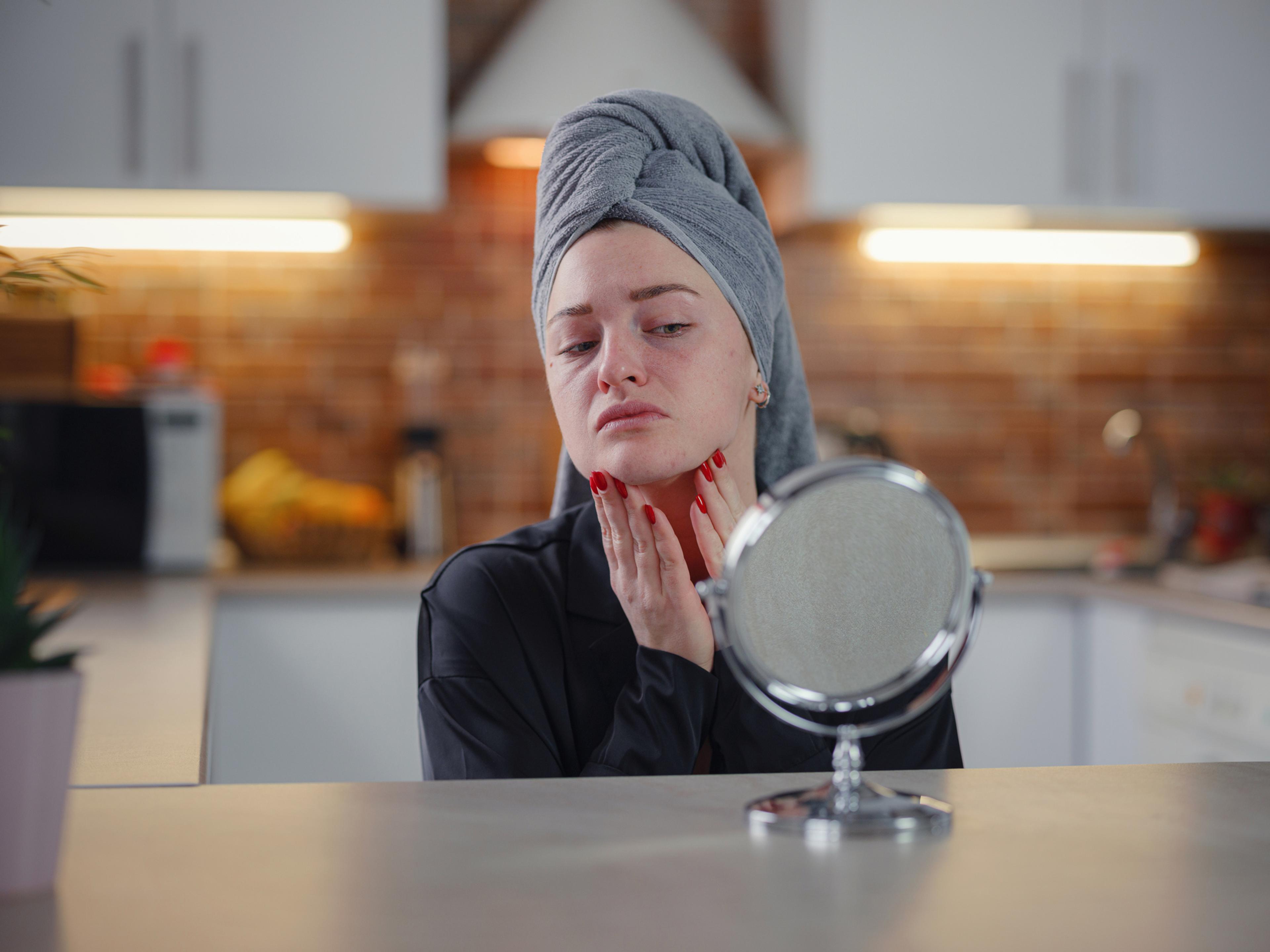Tips to Manage a Skin Breakout
A Healthier Michigan
| 4 min read

Breakouts on the skin can be frustrating and uncomfortable. When a breakout happens, there are ways to manage the discomfort in the affected areas. There are also products, behaviors, and foods to avoid to prevent breakouts.
What causes skin breakouts?
Acne or other conditions that irritate the skin are inflammatory responses that cause the skin to react in many ways. Acne is caused by three common issues:
- hormonal changes, fluctuations, or imbalances that cause excess oil on the skin
- bacterial infections in the skin that produce a response from the immune system
- oil, dust, or substances clogging the skin pores
What to avoid during an acne breakout
There are ways to try to manage the excess production of skin oils. One is to avoid aggressively washing your face, which can exacerbate the issue and abrase the skin and increase the chance of infections.
Excess carbohydrates and sugars
Eating a diet lower in sugars that quickly reach the bloodstream can help decrease acne breakouts, according to the American Academy of Dermatology. These types of foods are called “high-glycemic,” and the sugars in them raise blood sugar levels rapidly. Foods to avoid include sodas, fried foods, pastries and donuts, white bread, and fried or puffed rice or potato products.
Exfoliating or scratching the skin
While aggressive cleaning your face or areas with an acne breakout may seem like a good idea, it can easily irritate the issue. Gentle, regular cleaning of the face and skin with gentle soap and water is much more effective and kinder. Washing is very important but can cause dry skin and worsen acne. To help prevent this it is important to moisturize after cleansing the skin with a light well absorbing moisturizer. Look for soaps and topical products that are “non-comedogenic” or do not clog skin pores.
Touching your face or leaving hair on your face
Touching your face results in skin oils and other substances transferring from hands to your face. This can introduce dirt and bacteria, as well as excess oil. Leaving hair on the forehead or sides of the face can also keep the skin oilier and cause breakouts. Try to avoid hair products as they can block pores and worsen acne.
Picking at acne or popping pimples
Speaking of keeping hands off your face, picking at acne or popping whiteheads, blackheads, and pimples creates open wounds, introducing further risk of infection. It also can cause scarring and scar tissue. It is another easy way to introduce bacteria or excess oil from your hands onto your skin.
Tips for managing acne breakouts
Besides taking steps to avoid high-sugar foods and further irritation, there are other ways to manage breakouts. Here are steps you can take to manage acne and make your breakouts shorter or more bearable.
Clean your face and skin regularly
Cleaning your face and skin twice a day can help keep bacteria and excess oil off your skin. Make sure to choose hypoallergenic, unscented, gentle cleaners, soaps, and moisturizers, and use warm, not hot, water.
Shampoo your hair regularly
Shampooing your hair can decrease the amount excess oils from your hair transferring to your skin, especially for acne breakouts on the foreheads and cheeks.
Stick to the same products
Once you find a good gentle soap or cleaner for your face and skin, makeup remover, or other regular skin care products, stick with them. Changing your skincare routine can irritate your skin, change the immune reactions and oil production, and more. Make sure to keep your skin care essentials consistent.
Protect your skin from the sun
Use sunscreen daily, even when it’s not sunny or if you don’t plan to spend much time outdoors. Too much sun can negatively affect acne breakouts, and burned skin adds irritation and inflammation. Try to use brands that offer non-comedogenic products.
Related Links
image credit: Getty Images





